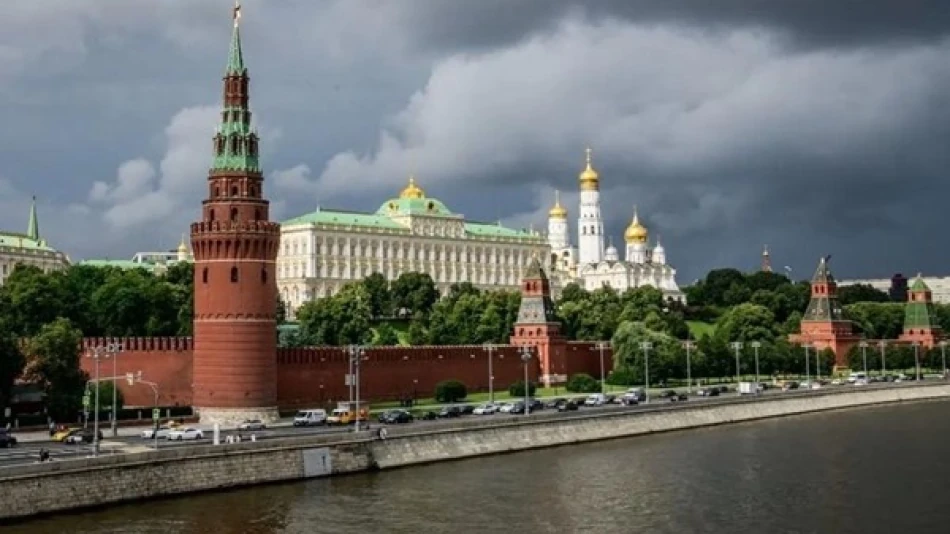
Kremlin Rebuffs Zelenskyy's Calls for Peace Talks: A Diplomatic Stalemate Amid Ukraine Conflict
Putin Prioritizes China Visit Over Peace Talks as Russia Deflects Western Diplomatic Pressure
The Kremlin has once again rejected calls for immediate peace negotiations between Vladimir Putin and Ukrainian President Volodymyr Zelensky, with Putin instead focusing on strengthening ties with Beijing through an unprecedented visit to China. The move signals Russia's continued reliance on Eastern partnerships while diplomatic pressure mounts from Western allies for swift conflict resolution.
Moscow's Strategic Pivot East
Kremlin spokesperson Dmitry Peskov announced Wednesday that Putin will embark on an "unprecedented visit" to China from August 31 to September 3, followed by participation in the Eastern Economic Forum in Vladivostok. This timing appears deliberately chosen to overshadow Western diplomatic initiatives, reinforcing Russia's pivot toward Asian economic partnerships that began intensifying after 2014 sanctions.
The China visit represents more than diplomatic theater. Since the conflict began, Russia has deepened its economic dependence on China, with bilateral trade reaching record levels as Moscow seeks alternatives to Western markets. Beijing has become Russia's primary economic lifeline, purchasing energy exports and providing technological goods that help circumvent sanctions.
Stalled Negotiations and Diplomatic Deadlock
While Peskov confirmed that Russian and Ukrainian negotiators maintain contact following previous Istanbul meetings, no timeline exists for resuming formal talks. Notably, the Kremlin spokesperson avoided addressing potential direct meetings between Putin and Zelensky, despite recent endorsements from U.S. President Donald Trump and German Chancellor Friedrich Merz.
This diplomatic silence reflects Russia's calculated approach to negotiations. By maintaining communication channels while avoiding commitments, Moscow preserves flexibility while continuing military operations. The strategy mirrors tactics used in previous conflicts, where Russia has used diplomatic processes to buy time rather than pursue genuine resolution.
NATO Presence Remains Non-Negotiable
Peskov reiterated Russia's fundamental red line: no NATO forces in Ukraine under any future security arrangement. This position directly contradicts Western discussions about post-conflict security guarantees for Ukraine, creating a seemingly irreconcilable gap in potential peace frameworks.
The NATO issue represents the conflict's core strategic dimension. Russia's 2022 invasion was partly justified by claimed concerns over NATO expansion, and Moscow appears unwilling to accept any outcome that doesn't address this fundamental grievance. European security planners face the challenge of providing Ukraine meaningful protection while avoiding arrangements that Russia would view as provocative.
Behind-the-Scenes Diplomacy
Interestingly, Peskov emphasized that meaningful progress requires private rather than public negotiations, stating that "work should not be done openly" to achieve results. This suggests Russia may be more flexible in confidential discussions than public positions indicate, though such flexibility would likely come with significant demands.
The Kremlin's praise for Trump's mediation efforts appears genuine, reflecting Moscow's preference for bilateral U.S.-Russia dialogue over multilateral European approaches. Russia historically views America as its primary strategic counterpart, potentially seeing Trump as a more favorable interlocutor than European leaders.
Market and Strategic Implications
Russia's focus on Eastern partnerships while deflecting Western peace overtures signals a long-term strategic realignment that extends beyond this conflict. Energy markets, already adapting to reduced Russian supplies to Europe, may see further consolidation of Russia-China energy ties through new pipeline projects and expanded cooperation agreements.
For investors, Russia's diplomatic stance suggests continued geopolitical uncertainty and sanctions pressure, likely maintaining elevated risk premiums across Eastern European markets and energy sectors. The prolonged conflict timeline implied by Moscow's approach indicates sustained defense spending requirements across NATO countries, potentially benefiting defense contractors while straining government budgets.
Most Viewed News

 Layla Al Mansoori
Layla Al Mansoori






